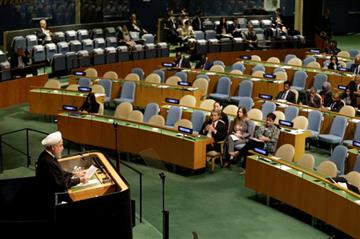
Reuters
Lebanese security forces arrested 40 Palestinians on Wednesday as they tried to leave by boat from the northern city of Tripoli for a journey toward Europe, the National News Agency said.
The group, which included men and women, was aiming to reach Germany and had come from the large, long-established Ain al-Hilweh Palestinian refugee camp in Lebanon’s south, NNA said. The boat’s owner was also detained.
There was no immediate comment from Lebanese justice authorities, but it is an offense to enter Tripoli’s port area without a security clearance or ferry ticket.










